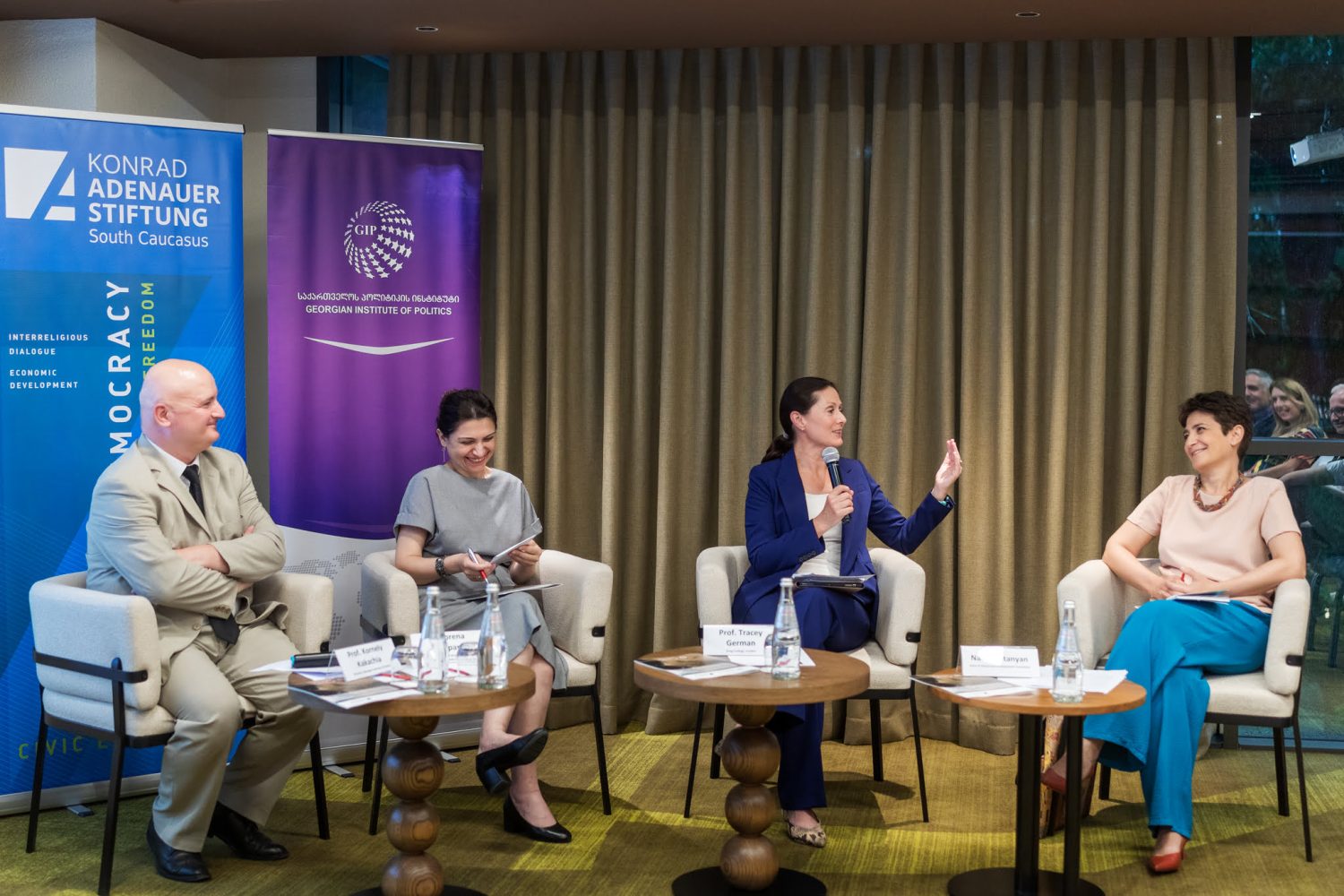On June 20, 2024, GIP-KAS Foreign Policy Talks “Examining South Caucasus Regional Cooperation and Foreign Policy Challenges” roundtable discussion was held in Tbilisi.
The recent war over Nagorno Karabakh significantly altered the geopolitical terrain, prompting widespread debates about the future perspectives of the South Caucasus region. Despite the turbulent background, for the first time in recent years, the discourse on the potential of regional cooperation returned to the public agenda.
Policymakers and expert communities in Georgia, Armenia, and Azerbaijan have acknowledged the opportunities and risks related to the evolving geopolitical context in the region. Georgia has recently signed the strategic partnership memorandum with Armenia, intensified bilateral meetings with leaders from Armenia and Azerbaijan, and hosted Baku-Yerevan negotiations in Tbilisi. However, internal political instabilities and external pressures continue to present substantial hurdles to enhanced cooperation efforts.
The idea of regional integration in the South Caucasus has been tried and tested over time with limited success. From the Transcaucasian Federation at the beginning of the XX century, Soviet integrationist processes, to the “Benelux of the Caucasus” model entertained since the mid-1990s, integrational projects have been mostly short-lived. However, historic and cultural ties between Georgia, Armenia, and Azerbaijan offer a strong foundation for enhanced cooperation. The potential for economic collaboration is promising, alongside shared geopolitical challenges influenced by various international actors and Russia’s regional interests. A lasting peace deal between Azerbaijan and Armenia could indeed pave the way for new opportunities in regional cooperation and stability. It’s crucial for all parties involved to work towards sustainable peace and constructive dialogue to unlock the region’s full potential. Should Azerbaijan and Armenia reach a lasting peace deal, it could open new opportunities for regional cooperation. EU’s renewed interest in the South Caucasus also showed efforts to invest in initiatives that could promote inter-regional integration, including planned investments in sectoral cooperation and connectivity projects. The current events in Georgia, however, signal democratic backsliding and serious regress in its EU integration, which might have a destabilizing effect on the region. Diverging positions on cooperation in international formats, including participation in the 3+3 format, also indicate the vulnerability of the South Caucasus as a political region.
The question remains whether changing geopolitical realities and internal pressures are enough to promote substantial inter-regional cooperation. The roundtable discussion addressed the need to facilitate informed debate across the South Caucasus region and brought together experts from all three South Caucasus countries: Georgia, Armenia, and Azerbaijan.
The session was opened by Stephan Malerius, Head of the Konrad-Adenauer-Stiftung in the South Caucasus. Prof. Kornely Kakachia, Director of the Georgian Institute of Politics moderated the discussion.
To facilitate public discussion on the future of the South Caucasus, Prof. Tracey German presented her policy paper, “The South Caucasus: Reviving Regional Cooperation or Fostering Authoritarian Regionalism?”
The panel included Naira Sultanyan, Head of Democracy Development Foundation; Murad Nasibov, Justus-Liebig University of Giessen, who participated virtually; and Shorena Lortkipanidze, Founder and a Board Member of the Civil Council on Defense and Security.


